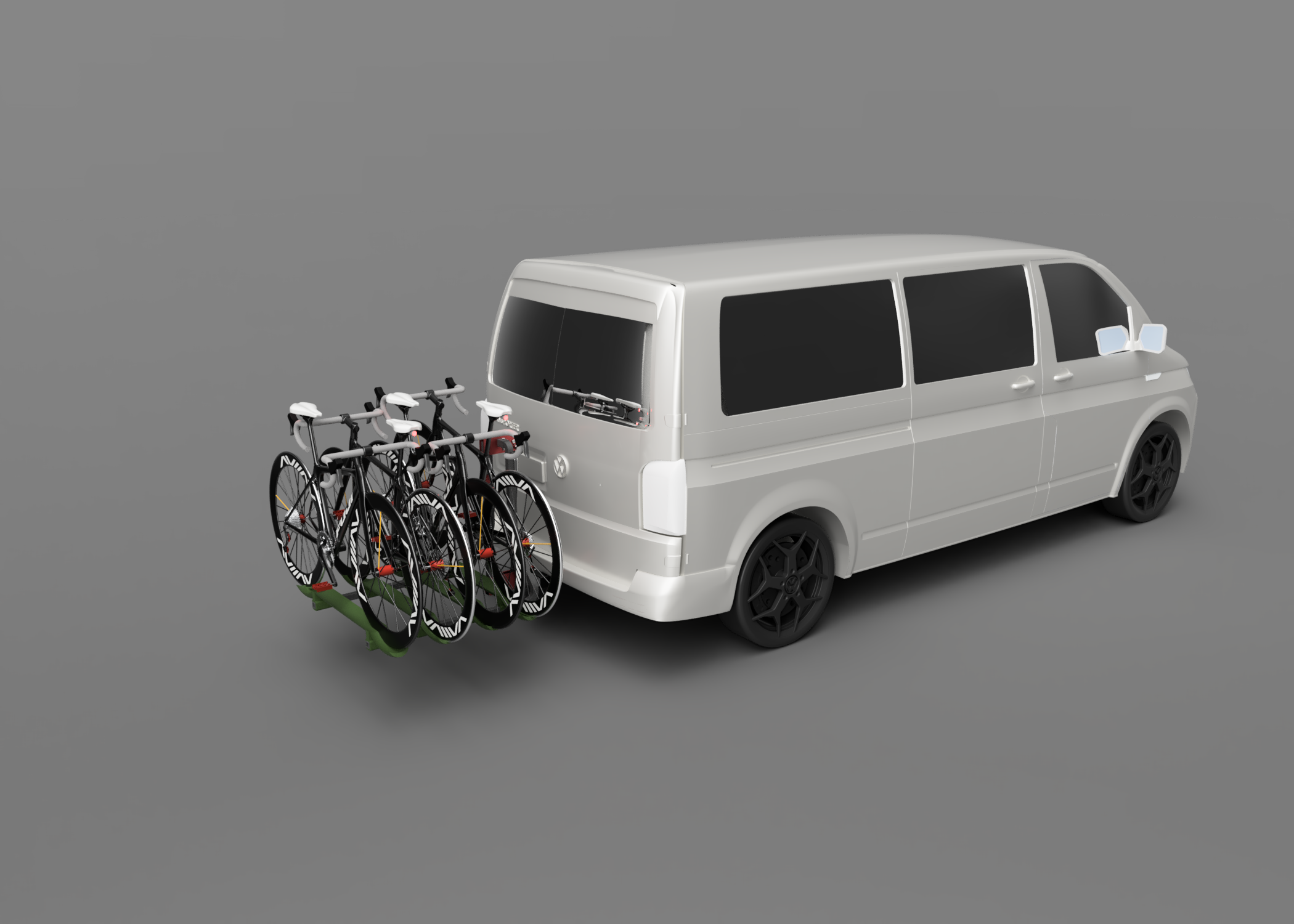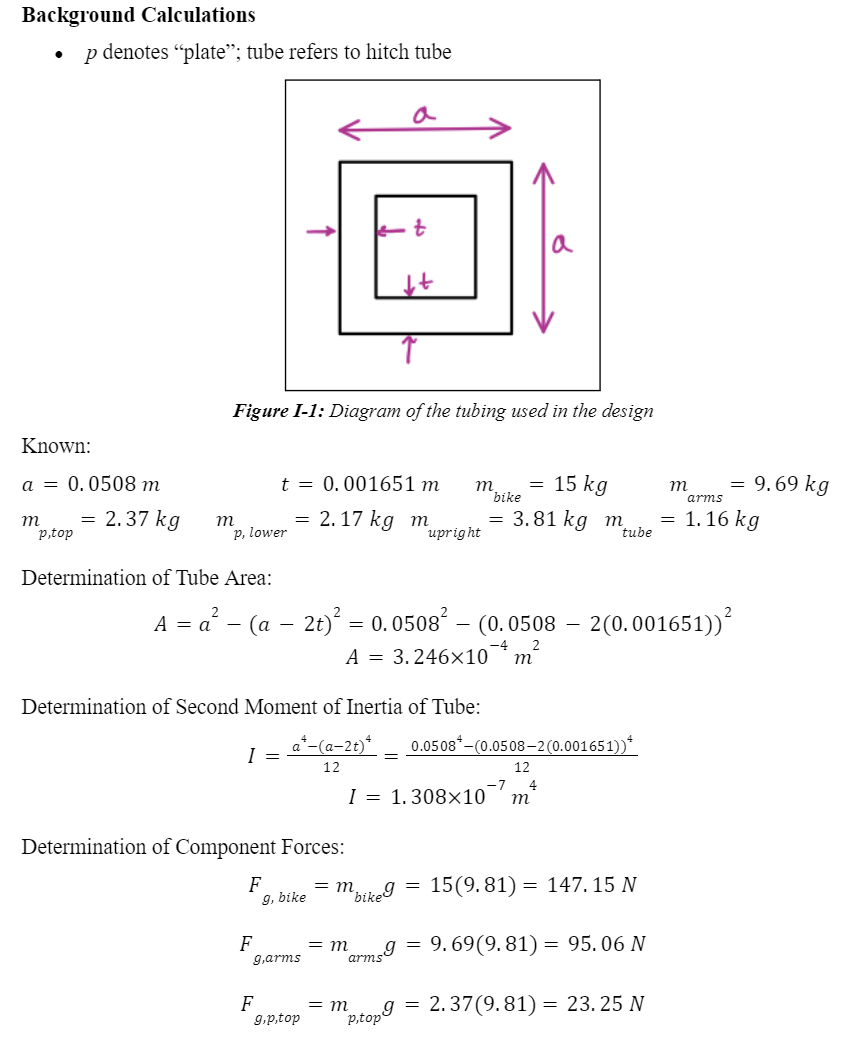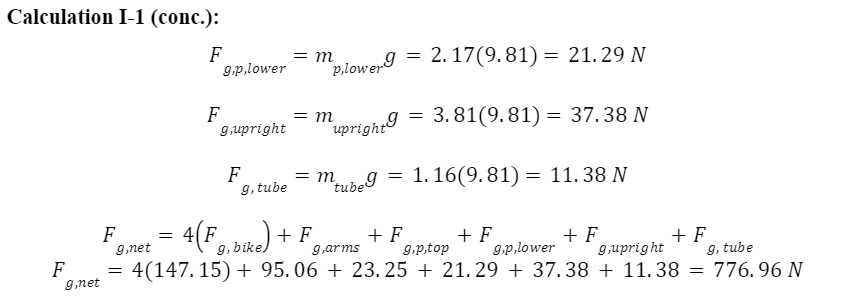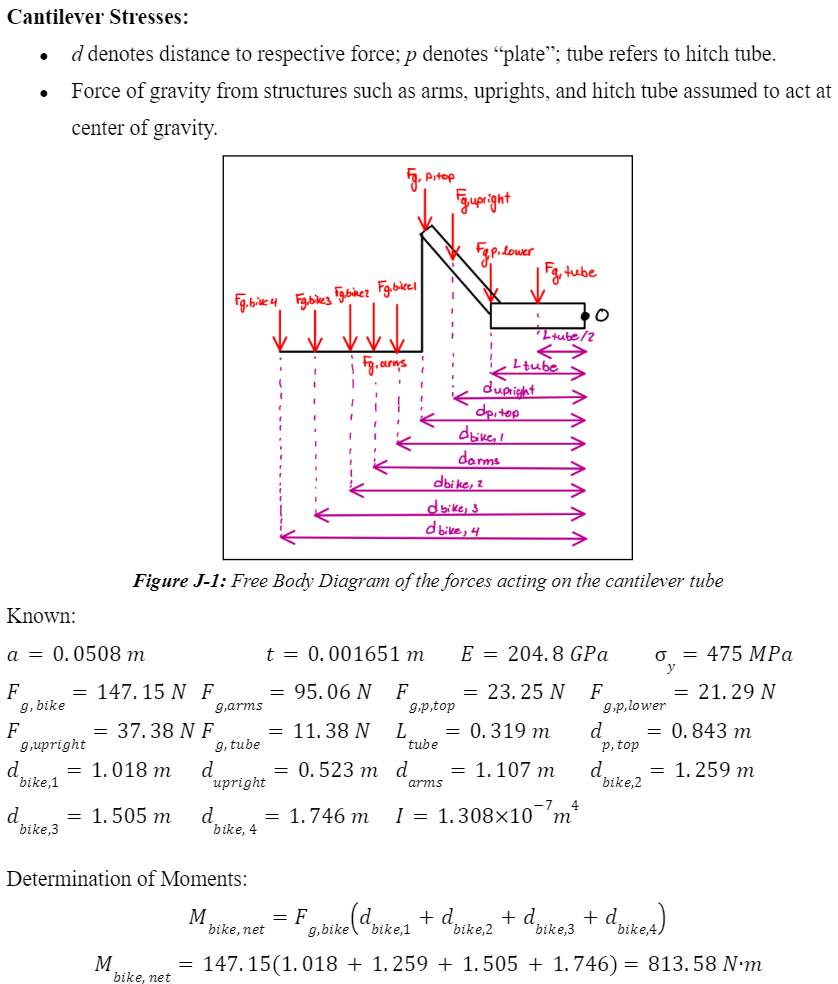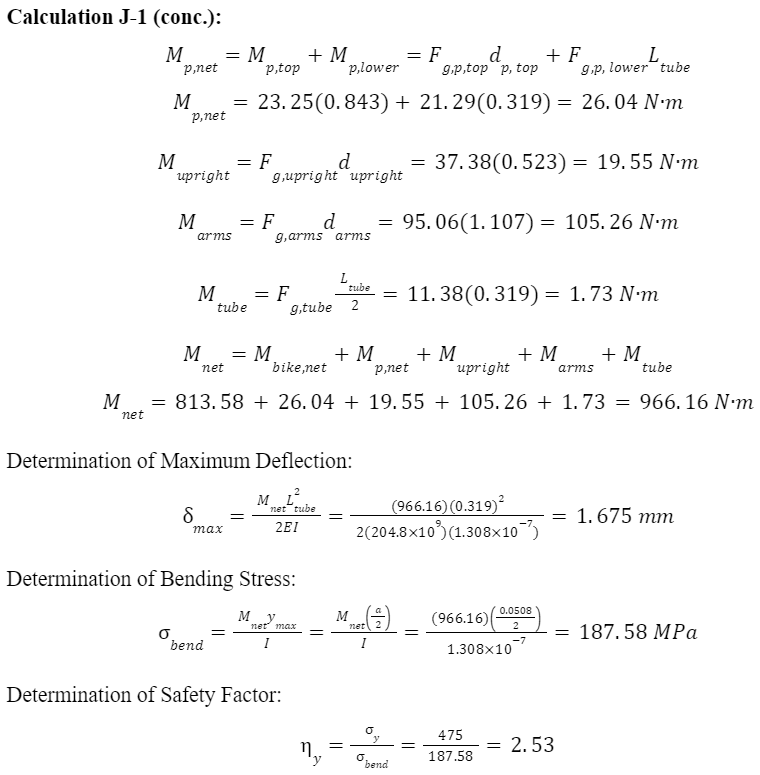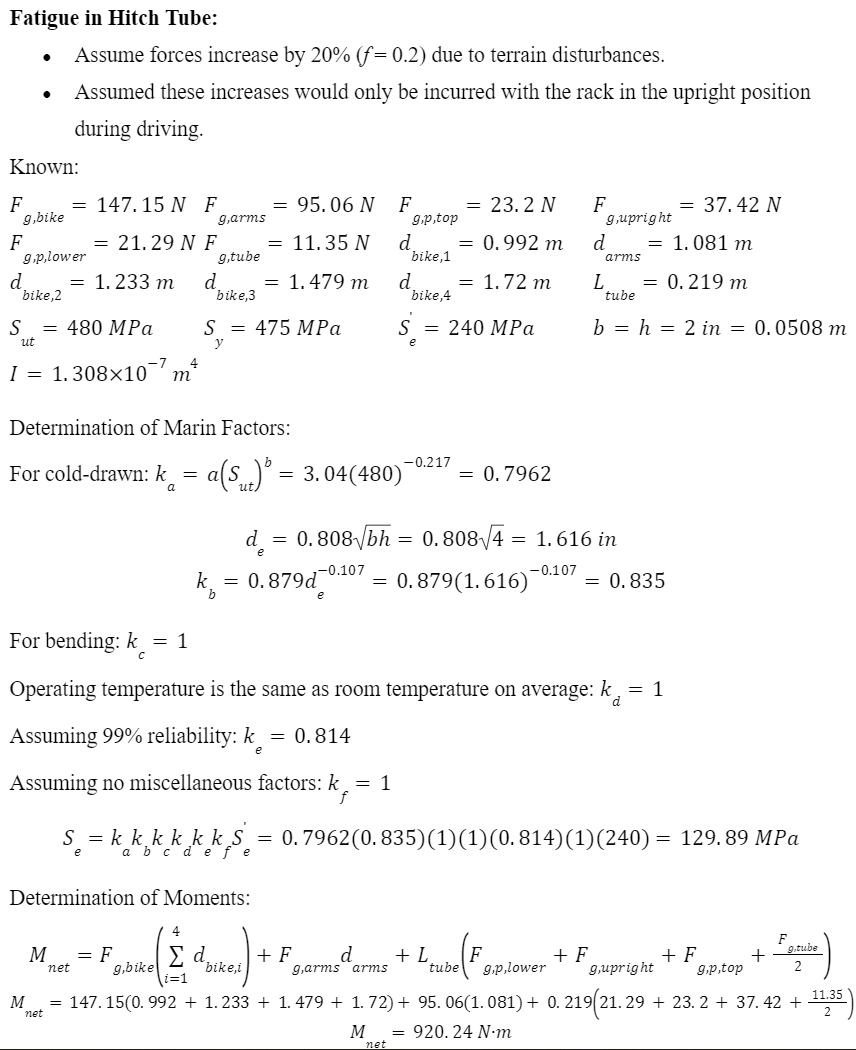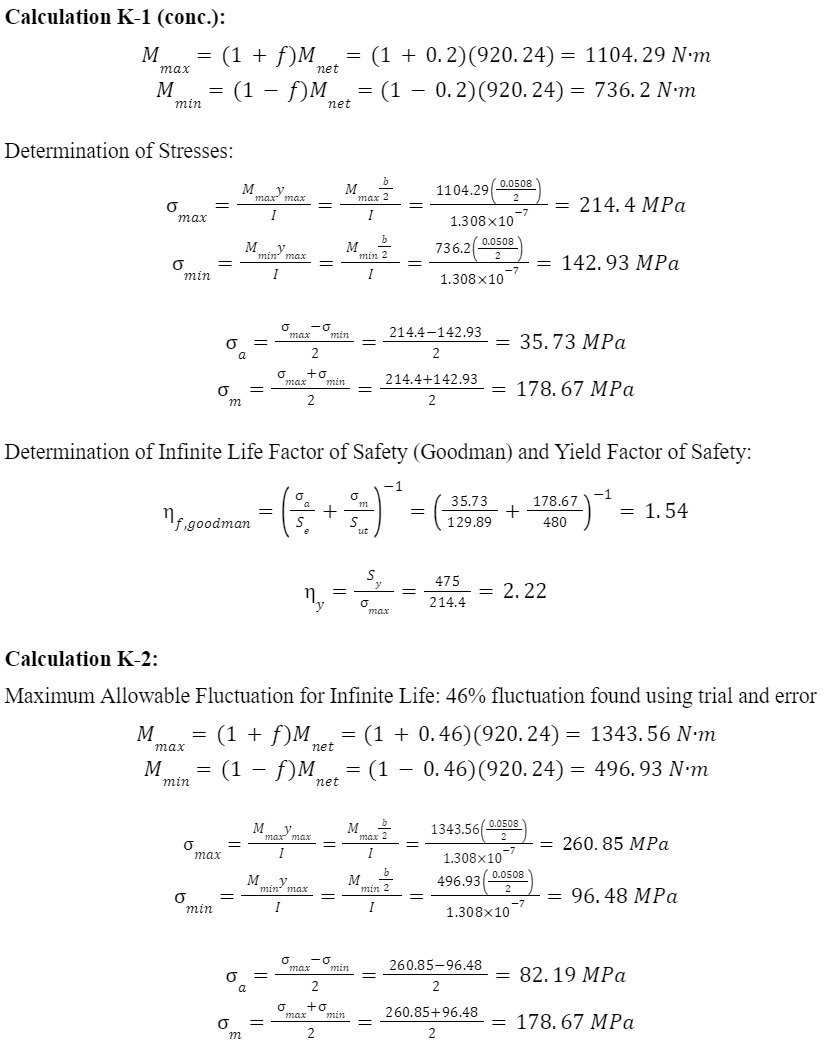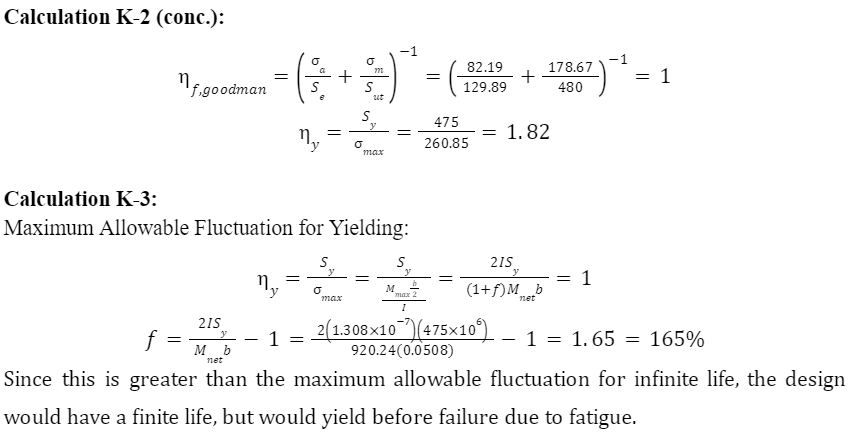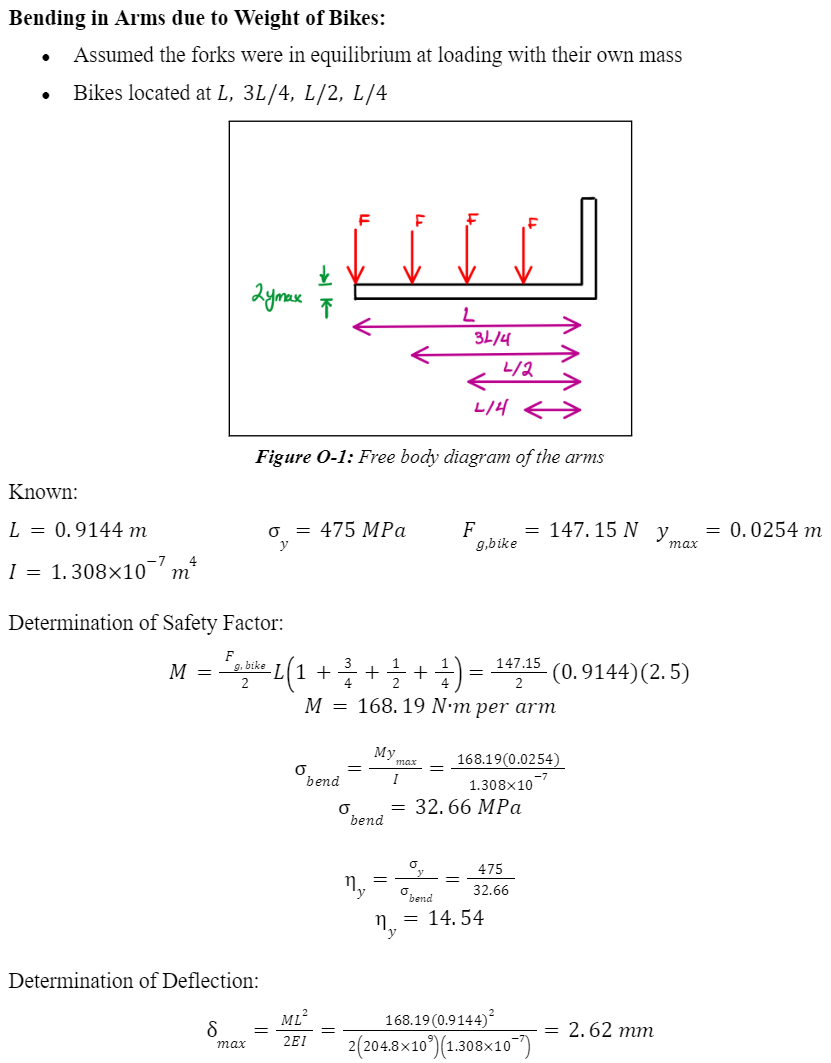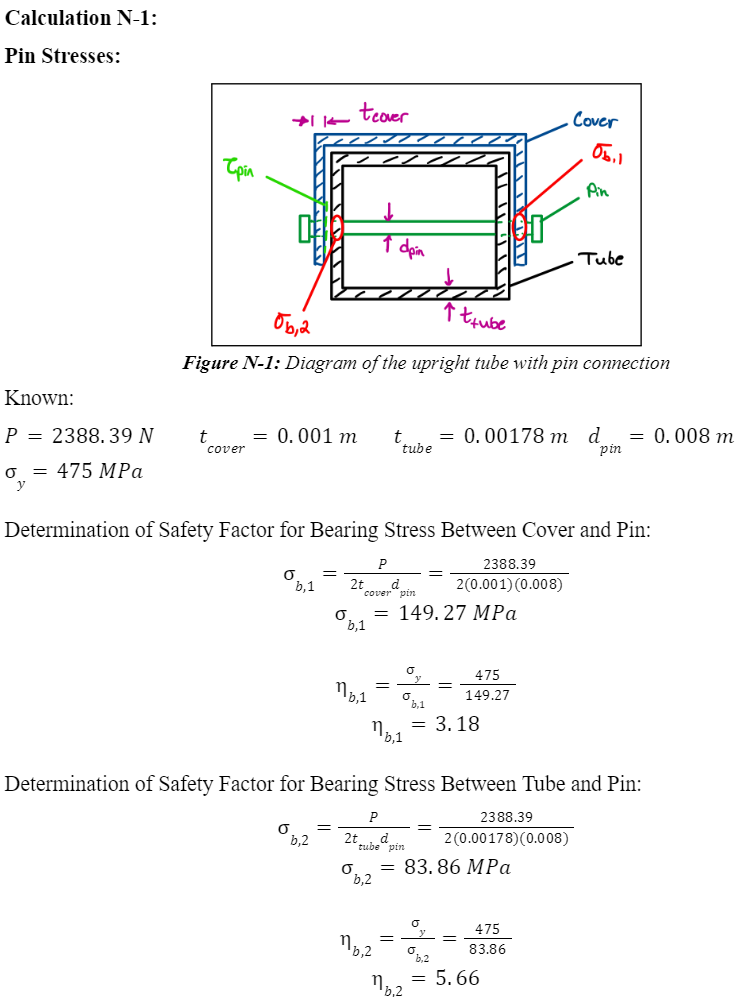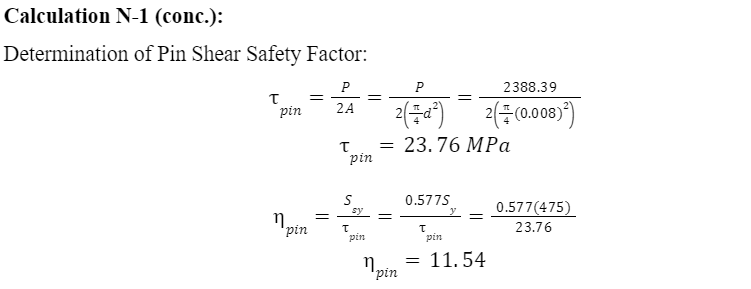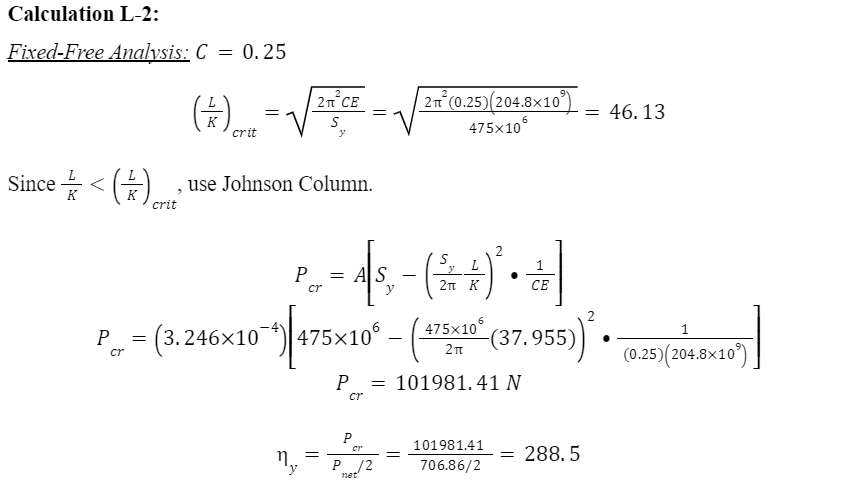JoyRida - Bike Rack
This was a fun University project to create a new type of bike rack that is easier to load and has higher lifting capacity compared to market solutions.
The goal of this project was to do in-depth Solid Mechanics calculations on the system including pin hear, column buckling, fatigue of the cantilevered system, and much more.
Operation
The bike rack uses a 2-bar parallelogram design to move the bikes through a 60° angle with 15 inches of vertical height while keeping the bikes parallel with the ground. The design works with both barn doors and swinging tailgates.
Additionally, we have a gas spring and damper mounted on the system to reduce the effort required by the user to lift the bike and dampen its fall to the ground. Pinned spring locks allow for locking the system in a vertical position and disengagement of the gas spring is possible when lowering with no bikes.
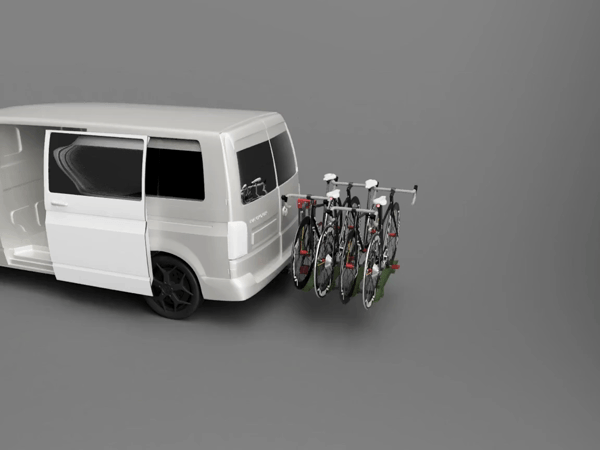 Operation with swinging tailgate
Operation with swinging tailgate
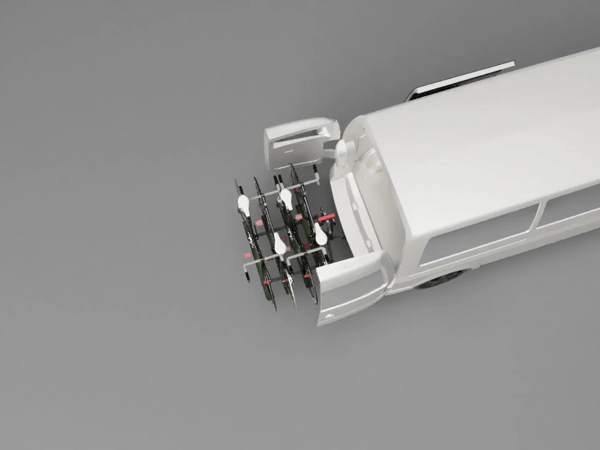 Operation with swinging tailgate
Operation with swinging tailgate
Calculations
Background Calculations
Shows how properties like the second moment of Inertia were determined and the loads on the system. We optimized the tube geometry 4 times to improve stiffness and reduce mass.
Hitch Tube Bending Calculations
Looking at Bending Stress in Hitch Tube that interfaces with vehicle. We also compared these results with FEA which showed us a similar safety factor of 2.4 for the given tube geometry and material.
Fatigue in Hitch Tube Calculations
The Hitch Tube will be taking the full load of the assembly with bikes in a dynamic environment on a moving car.
Bike Arm Bending Calculations
Looking at Bending Stress in arms due to the bikes. We also compared these results with FEA which showed us a much larger deflection of around 25mm due to the simulation considering the bending of the ENTIRE system.
Pin Shear Calculations
Looking at pin shearing in various modes at the cover-piece that engages/disengages the gas springs.
Column Buckling Calculations
Looking at column buckling in the upright members during a static loading scenario.
